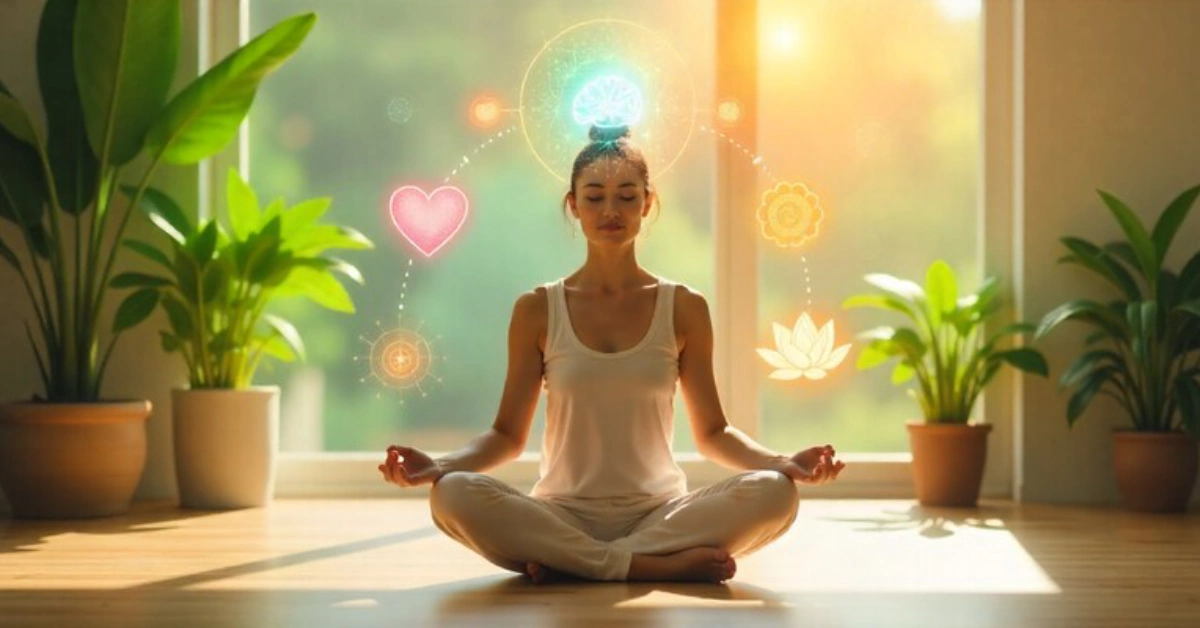Your doctor hands you another prescription. Your therapist suggests one more coping technique. Your trainer tweaks your workout plan. Yet nothing clicks long-term because everyone treats you like disconnected parts instead of one complete human.
Holisticke flips that script entirely. This modern wellness approach recognizes that your physical health, mental clarity, emotional state, and spiritual connection all influence each other constantly. When one area tanks, the others feel it. When one improves, benefits ripple through your entire system naturally.
You don’t need to abandon proven medical treatments or drop thousands on wellness retreats. You just need to understand how your life’s different pieces fit together and work with your body’s natural healing abilities instead of constantly fighting symptoms.
What Makes Holisticke Different from Your Doctor’s Office
Walk into most medical appointments with chronic fatigue, and you’ll walk out with lab orders and maybe a vitamin recommendation. The symptom gets addressed. The underlying imbalance? Still there, quietly causing problems.
Holisticke takes a different path entirely. A practitioner asks about your sleep quality, stress patterns, relationships, diet habits, and recent life changes before suggesting solutions. Your fatigue becomes a starting point, not the endpoint.
This doesn’t mean rejecting conventional medicine—many holistic practitioners hold medical degrees and prescribe medications when needed. The difference lies in the investigation process and understanding that everything influences everything else.
Your gut health affects your mood through the gut-brain axis. Your thoughts trigger physical stress responses that show up as tension and pain. Your relationships impact immune system function through stress hormones and inflammation pathways.
Ancient healing systems like Ayurveda and Traditional Chinese Medicine understood these connections thousands of years ago. Holisticke brings this wisdom forward for modern life, adapting timeless principles for contemporary challenges.
Research backs this combined approach. Studies show integrative healthcare reduces costs, improves patient satisfaction, and delivers better long-term outcomes for chronic conditions like autoimmune disorders and persistent pain.
Building Your Physical Foundation Without the Gym Guilt
Your body needs more than hitting step goals or counting macros. It needs movement that feels natural, food that actually nourishes you, and rest that restores instead of just passing time.
Physical health in Holisticke starts with one question: How does your body actually feel right now? Most people ignore body signals until they become screaming emergencies requiring medical intervention.
You push through fatigue with caffeine. You silence hunger with processed snacks between rushed meetings. You override pain signals with medication while continuing activities that cause that pain. This approach guarantees eventual breakdown, and your body keeps score.
Holisticke teaches body literacy—reading and responding to signals before they escalate into serious problems. When you notice afternoon energy crashes, that’s your body requesting better breakfast nutrition or earlier bedtime, not more coffee and willpower.
Movement becomes about function and joy rather than punishment or aesthetics. Walking in nature, dancing to music you love, swimming, yoga, tai chi—whatever makes you want to move regularly beats forcing yourself through workouts you hate.
Consistency matters way more than intensity here. Your body needs regular, varied movement that builds strength and flexibility without creating chronic stress from overtraining or pushing through pain.
Nutrition focuses on whole foods your body recognizes and processes efficiently without extreme restrictions or food guilt. You experiment and notice patterns—how different foods affect your energy, mood, digestion, and sleep quality throughout the day.
Sleep gets the respect it deserves as your body’s primary repair time. During quality sleep, your brain consolidates memories and clears metabolic waste while your immune system strengthens and your tissues repair themselves naturally.
Seven to nine hours isn’t optional—it’s foundational to everything else working properly. Hydration matters more than most realize since your brain is 75% water, and mild dehydration impairs cognitive function before you even feel thirsty.
Mastering Mental Clarity When Everything Feels Chaotic
Your mind processes roughly 60,000 thoughts daily. Most run on autopilot—the same worries, judgments, and stories you’ve been replaying for years without questioning their accuracy.
This mental noise drains energy, creates unnecessary stress, and prevents you from being present in your actual life. Holisticke mental practices create space between stimulus and response, giving you back control over your attention.
You observe thoughts without believing every one or getting trapped in negative spirals. You recognize that thoughts aren’t facts—they’re just mental events you can choose to engage with or let pass like clouds.
Meditation and mindfulness training aren’t spiritual indulgences—they’re brain training with measurable effects confirmed by research. These practices reduce cortisol levels, improve focus and working memory, enhance emotional regulation, and physically change brain structure over time.
You don’t need hour-long meditation sessions to benefit from these practices. Five minutes of daily practice beats occasional lengthy sessions that you can’t sustain long-term because they feel too demanding.
You can practice mindfulness during routine activities: fully tasting your food, noticing sensations during your shower, paying complete attention to conversations without planning your response while someone talks.
Managing information overload becomes essential for mental health in 2025. Constant notifications, news alerts, social media streams, and entertainment options create decision fatigue and attention fragmentation that leave you mentally exhausted.
Holisticke encourages intentional boundaries—designated phone-free times, curated content consumption, and periods of genuine rest where your brain isn’t processing external input constantly. Mental clarity also means honest self-assessment about when you need professional support.
Processing Emotions Instead of Pushing Them Down
Modern culture treats emotions like inconvenient interruptions to productivity. Feel sad? Push through it with positive thinking. Feel angry? Calm down immediately without understanding why you’re upset.
This emotional suppression creates problems that manifest as physical symptoms, relationship conflicts, or destructive behaviors. Holisticke views emotions as essential information about your needs, boundaries, and alignment with your values.
Anger signals boundary violations or unmet needs. Anxiety warns of genuine threats or highlights misaligned priorities that drain your energy. Sadness processes loss and transitions that need acknowledgment.
Joy confirms you’re living aligned with your values. When you suppress these signals, you lose access to crucial self-knowledge that guides healthy decision-making and relationship dynamics.
Emotional balance doesn’t mean constant positivity or toxic optimism that ignores real problems. It means feeling fully without becoming overwhelmed by emotions or letting them control your behavior impulsively.
You develop the capacity to identify emotions accurately, understand their messages, and respond appropriately rather than reactively. Practical approaches include journaling to process thoughts and feelings or creative expression through art and music.
Somatic practices release stored tension from your body, where emotions often hide. Therapeutic support helps you work through deeper issues that self-help strategies can’t fully address alone.
Strong relationships require emotional skills you might not have learned growing up. You learn to communicate needs clearly, set boundaries that protect your energy, and invest time in connections that genuinely nourish you while creating distance from ones that consistently drain you.
Quality matters more than quantity—three authentic relationships provide more support than thirty superficial acquaintances who disappear when you actually need help. Emotional intelligence predicts life success better than IQ across career advancement, relationship satisfaction, and overall life fulfillment.
Finding Meaning Beyond Your Daily Grind
Spirituality in Holisticke doesn’t require religious belief or mystical experiences. It addresses deeper questions: What gives your life meaning beyond daily routines? How do you contribute to something larger than yourself?
Some people discover spiritual connection through nature immersion, feeling part of something vast and beautiful. Others find it through creative pursuits that put them in flow states where time disappears and self-consciousness fades.
Service work connecting you to community needs, meditation practices revealing consciousness beyond thought, or studying philosophies that resonate with your values all serve spiritual development. The path matters less than the destination—cultivating a sense of purpose that transcends immediate concerns.
This perspective doesn’t make problems disappear magically. It provides context that prevents temporary setbacks from feeling like permanent defeats that define your worth or capabilities.
Research links spiritual well-being to better mental health outcomes, faster recovery from illness, increased resilience during adversity, and greater life satisfaction. This happens through multiple mechanisms: social support from community involvement and stress reduction from contemplative practices.
Enhanced meaning motivates healthy behaviors even when they’re inconvenient. Nervous system regulation from practices like prayer or meditation creates physiological benefits that extend beyond subjective feelings of peace.
Gratitude practices exemplify accessible spiritual development anyone can start today. Regularly acknowledging what you appreciate shifts attention from constant lack to present abundance without ignoring real problems that need addressing.
Creating Spaces That Support Your Wellness Goals
You can’t achieve lasting wellness while living in chaos or toxic surroundings. Your physical space, social circles, and natural environment directly impact your health, whether you notice it consciously or not.
Physical spaces affect mood, productivity, sleep quality, and stress levels in measurable ways. Clutter creates mental stress by overwhelming your visual system with unfinished decisions that drain cognitive resources throughout the day.
Poor lighting disrupts circadian rhythms essential for quality sleep. Indoor air quality impacts respiratory health and cognitive function more than most people realize until they improve it.
Holisticke encourages creating spaces that actively support your goals rather than working against them. This might mean decluttering regularly, maximizing natural light exposure, adding plants for air purification, or designing work areas that reduce physical strain.
Small changes compound over time—replacing harsh overhead lights with warmer task lighting, opening windows for fresh air circulation, or removing bedroom screens for better sleep all contribute to improved wellbeing.
Your social environment matters equally to your physical surroundings. You absorb the energy, habits, attitudes, and behaviors of people around you through mirror neurons and social conditioning that happens mostly outside conscious awareness.
Spending time with anxious people increases your anxiety through emotional contagion. Connecting with growth-oriented individuals inspires your development through positive peer influence and accountability.
Your Next Step Forward Starts Right Now
Holisticke offers a framework for understanding how your life’s different pieces interconnect and influence each other. You don’t need illness or crisis to benefit—you just need desire for something beyond mere survival and getting through each day.
Start where you are right now with whatever resources you currently have available. Do what feels manageable today rather than overwhelming yourself with massive changes that rarely stick long-term.
Your body possesses a remarkable healing capacity when given proper support. Your mind wants clarity and peace instead of constant mental chatter. Your spirit seeks meaning and connection beyond surface-level existence.
Balance doesn’t mean perfection or flawless execution every single day. It means honest assessment, consistent small actions, and patience with the process as you build sustainable habits over time.
Take your first step today by choosing one small practice that addresses your biggest pain point right now. Notice how you feel after one week of consistent practice. Adjust based on results and continue building from there with curiosity instead of judgment.

